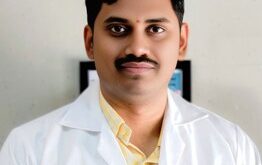Authored by Dr. Thirumalesh K Reddy, Sr. and Lead Consultant – Joint Replacement and Arthroscopic Surgery, Aster CMI Hospital
From providing support to the body, facilitation of movement, protection of internal organs, storage of minerals and fat, and haematopoiesis (formation of blood cellular components), bones play an integral part in our body. Keeping our bone health strong is vital to support our entire body weight and help form our shape. There are many things one can do to keep the bones healthy and strong. Eating foods rich in calcium, getting plenty of exercises, and having good health habits help keep the bones healthy.
Factors that can affect bone health
Due to various factors, the bones can become weak and brittle. This can lead to breaks, fractures, as well as long-term health issues. Broken bones (called fractures) can be painful and sometimes need surgery to heal.
Some of the factors that can be controlled are;
- Diet: A diet low in calcium can cause the bone to lose its density, early bone loss and an increased risk of fractures due to osteoporosis.
- Lack of exercise: The bones require physical activity to maintain strength, density, and resilience. Sedentary lifestyle and physically inactive people have a higher risk of developing osteoporosis. Exposure to sunlight and exercise help maintain Vitamin D levels.
- Tobacco and alcohol use: Using tobacco has been associated with reducing the bone mass and increasing the chances of experiencing fractures and breaks. And studies have shown that regularly having excessive alcohol may increase the risk of osteoporosis. Heavy alcohol consumption can impact the bone density.
- Body Weight: It is ideal for everyone to maintain a healthy weight to keep the bones healthy. Bodyweight is directly associated with bone mineral density (BMD). Low body mass index (BMI) has been identified as an important risk factor for lower BMD and high body weight can lead to an increase BMD.
Uncontrollable factors
- Gender: Hormonal changes after menopause increases the risk of osteoporosis in women.
- Age: As you age, the bones gradually become thinner and weaker.
- Race and family history: Studies have shown that Asian and European descent are more likely to get osteoporosis than other ethnic groups.
How bone health develops with age?
Your bones are continuously changing. New bone is made and old bone is broken down. However, as you age, your bones become thinner and lose their density. Hence, it is important to build strong and healthy bones during childhood and adolescence. During adulthood, one can take steps to protect bone health. One must understand that it is never too late to take care of your bones.
Adolescence period is known for the greatest bone growth. In young adulthood, the bones reach their maximum strength and density by 30. During middle adulthood, gradual bone loss begins and remodelling process slows down. In people above 50 years, the focus must be given on strengthening bones with proper nutrition and exercise and for those over 70, it is vital to prevent fall to lower the risk of fractures.
One can keep their bones healthy by consuming lots of vegetables, Milk and by including plenty of calcium in the diet. Your body needs vitamin D to absorb calcium. So, make sure that you are getting enough Vit D. Salmon, tuna, mushrooms, eggs and fortified foods, such as milk and cereals, are good sources of vitamin D. One can get the natural source of Vit D from early sunlight. One must include weight-bearing exercises like walking, jogging, and climbing stairs can help you build strong bones and slow down bone loss. And lastly, avoid consumption of tobacco and alcohol.
Test to measure bone mineral density
A DEXA scan is an imaging test that measures bone density (strength). It is done to check bone mineral density and helps determine risks of osteoporosis and fracture.
 Newspatrolling.com News cum Content Syndication Portal Online
Newspatrolling.com News cum Content Syndication Portal Online







